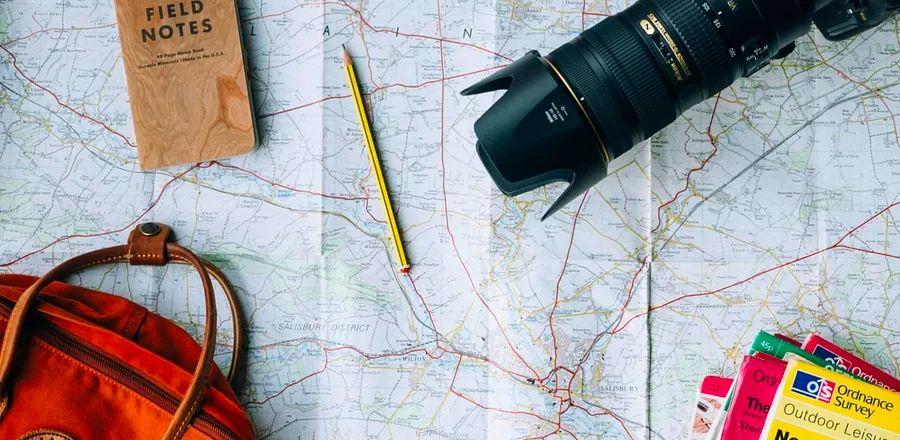Here’s How Much You Should Actually Be Spending on Your Travels

When planning the ideal getaway, there are many factors to consider. For most travelers, the top priority is often the cost. However, if we let worries about expenses cloud our vacation experience, it undermines the very essence of travel, which is to escape daily routines and enjoy a time to reset, recharge, and unwind. Thankfully, with some thoughtful planning and effective budgeting tips, you can eliminate the stress of spending and pave the way for a relaxing and budget-friendly holiday.
What portion of your budget should you allocate for travel?
When setting aside money for a trip or several trips, the financial strategy may vary from person to person. There isn’t a universal percentage of income that should be earmarked for travel. The amount you save should reflect your priorities and what aligns with your income.
“There isn’t a fixed amount or percentage you should allocate for travel. After covering all your monthly expenses, you’ll have a leftover amount for discretionary spending,” explains Christopher Miller, a financial advisor at Krueger Financial Group. “From there, you must decide how to spend it based on what matters most to you. This could mean purchasing the latest gadgets, dining out, traveling, or saving for significant investments like home renovations.”
Miller suggests adopting a 70/20/10 budget strategy. This entails allocating 70 percent of your income to household expenses, which includes paying off debts. Twenty percent should be dedicated to savings, encompassing retirement funds. This leaves 10 percent of your income for discretionary spending, which can cover travel or further savings.
The initial step in determining how much to set aside for travel is to calculate the expenses of your dream trip. Research the costs of accommodations, airfare, activities, and meals to arrive at an approximate total for the entire journey. Once you have this figure, you can establish a timeline for your savings.
“We advise keeping a detailed record of all monthly income and expenditures, so you can track what enters and leaves your finances. By doing so, you'll gain a clearer understanding of how much you can allocate to travel,” Miller states. “For any significant expense like travel, consistently saving a little each month can help you reach your target. For example, if your trip costs $2,400, saving $200 monthly will achieve your goal in a year.”
Enjoying a vacation without guilt means ensuring you won’t incur debt as a result. Saving prior to your trip is the most effective way to accomplish this. While it's perfectly fine to charge trip expenses to a credit card, make sure you can pay it off immediately or without accumulating interest.

Courtesy of Coco Hotel
What travel expenses should you keep in mind?
Once you have an estimated total for your trip, you can begin to categorize it into specific travel expenses. This is where you can get imaginative and plan your ideal itinerary.
Airfare and accommodations are the primary costs to consider, as they usually represent the largest portions of your travel budget. Will you indulge in your lodging, or view it merely as a place to rest? Do you have any credit card rewards that could be used for hotel upgrades or discounted flights? If you’re unfamiliar with points and miles, we’ll touch on that shortly.
After securing your flight and accommodation, you can evaluate what remains in your budget for meals and activities, depending on your preferences.
Travel priorities vary for everyone. For instance, food enthusiasts may allocate a larger portion of their budget for dining out, while others might choose to prepare their own meals to save for activities, shopping, or spa experiences (in which case, a vacation rental or a hotel with kitchen-equipped rooms might be preferable).
“My usual travel expenses include lodging, airfare, activities, and meals,” explained Caroline Lupini, a full-time traveler for the last decade and the managing editor for Forbes Advisor’s credit cards and rewards travel sections. Over the past ten years, she has journeyed to over 100 countries while living on the move.
“I have a particular passion for food, so I set aside additional funds to participate in food tours, dine at upscale restaurants, and dive deeper into the culinary culture of a country. This year, my partner and I will be traveling through West Africa for a significant part of the year, which required us to allocate a substantial budget for visas. Depending on our exact travel destinations, we might each need to spend around $1,000 on visas. So far in 2024, I’ve already spent $350 on visa fees.”
Tips for creating a daily budget while traveling
Lupini shared, “I maintain my standard budget for accommodation, airfare, food (both dining out and groceries), beverages, activities, and other unexpected expenses. I record all my spending using an app called TravelSpend, which simplifies tracking expenses in various currencies. Every month, I also update my totals in a spreadsheet.”
If she manages to stay under budget, she allocates half of the remaining funds to investments and the other half to her “special trip fund,” which is designated for unique activities she wants to experience that exceed her typical spending limits.
“It’s my guilt-free money for travel expenses,” she explained. “I believe this is a strategy that anyone can use in their own finances to save for travel.”
Maximizing your trip with points and miles
Leveraging credit card points and airline miles is an excellent method to enhance your travel budget and gain fantastic perks along the way, such as complimentary breakfasts and upgrades for your room or airplane seat. If you feel daunted by the intricacies of various points and miles programs, rest assured that you’re not alone; there’s a lot to grasp. Even a basic understanding of these systems can help you make your trip budget go further. Since travel often involves high-cost items like airfare and accommodations, it presents a valuable chance to earn points and miles for your future travels—essentially using your current journey to finance your next one.
“I’m passionate about points and miles. I started learning about them in college when I wanted to travel more but had limited funds. Now, I frequently use my points and miles to enhance my travel experiences—think business class for long flights and occasionally indulging in a luxury hotel instead of opting for an Airbnb or a budget hotel,” Lupini shared.

Courtesy of United Airlines
There are numerous resources available for those looking to dive into the world of points. She suggests exploring forums, reading blogs, and following travel influencers on Instagram and TikTok for valuable insights and tips.
“My top advice,” she mentioned, “is to find individuals or several people whose travel styles align with your goals and follow them to kickstart your journey. I also suggest beginning with a single flexible points currency, such as Chase Ultimate Rewards. Flexible point currencies offer many more options than specific airline miles, and they provide simpler redemption choices if you prefer not to delve too deeply into individual frequent flyer programs.”
Allocate some funds for unexpected or emergency expenses
While no one plans for mishaps during their travels, unexpected situations can arise: a canceled or delayed flight, a lost hotel reservation, a medical emergency, or lost luggage, to name a few. Surprise expenses are part of life, and unfortunately, they can occur on vacations as well. Having a contingency plan or an emergency fund can significantly alleviate the financial impact of these unforeseen events.
“Unexpected events are bound to happen, but sticking to your budget will help accommodate any emergency expenses,” Miller noted. “Maintaining a separate emergency savings account, aside from your travel budget, can assist in covering these costs. It’s wise to have an emergency fund whether you’re traveling or not.”
Travel insurance is one of the most effective ways to safeguard yourself against emergencies or unexpected events. Typically, travel insurance covers emergency medical expenses as well as compensation for canceled or delayed trips, lost luggage, and more.
When budgeting for travel, the key considerations are not to overspend, ensure you’re protected, and have sufficient savings to relax and enjoy your trip. A vacation should be a time for indulgence—within your financial limits.
Miller emphasized, “Avoiding financial strain from travel expenses is crucial. Financing a vacation for the following 12 months after your trip can be detrimental in the long run.”
Evaluation :
5/5



